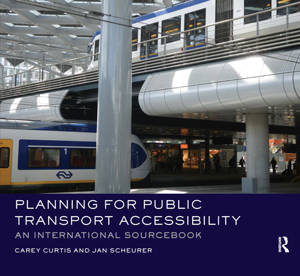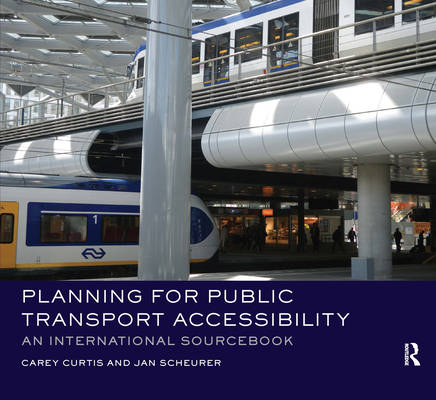
- Afhalen na 1 uur in een winkel met voorraad
- Gratis thuislevering in België vanaf € 30
- Ruim aanbod met 7 miljoen producten
- Afhalen na 1 uur in een winkel met voorraad
- Gratis thuislevering in België vanaf € 30
- Ruim aanbod met 7 miljoen producten
Planning for Public Transport Accessibility
An International Sourcebook
Carey Curtis, Jan ScheurerOmschrijving
Bringing together a comparative analysis of the accessibility by public transport of 23 cities spanning four continents, this book provides a "hands-on" introduction to the evolution, rationale and effectiveness of a new generation of accessibility planning tools that have emerged since the mid-2000s. The Spatial Network Analysis for Multimodal Urban Transport Systems (SNAMUTS) tool is used as a practical example to demonstrate how city planners can find answers as they seek to improve public transport accessibility. Uniquely among the new generation of accessibility tools, SNAMUTS has been designed for multi-city comparisons. A range of indicators are employed in each city including: the effectiveness of the public transport network; the relationship between the transport network and land use activity; who gets access within the city; and how resilient the city will be. The cities selected enable a comparison between cities by old world-new world; public transport modes; governance approach; urban development constraints. The book is arranged along six themes that address the different planning challenges cities confront. Richly illustrated with maps and diagrams, this volume acts as a comprehensive sourcebook of accessibility indicators and a snapshot of current policy making around the world in the realm of strategic planning for land use transport integration and the growth of public transport. It provides a deeper understanding of the complexity, opportunities and challenges of twenty-first-century accessibility planning.
Specificaties
Betrokkenen
- Auteur(s):
- Uitgeverij:
Inhoud
- Aantal bladzijden:
- 328
- Taal:
- Engels
Eigenschappen
- Productcode (EAN):
- 9780367668365
- Verschijningsdatum:
- 30/09/2020
- Uitvoering:
- Paperback
- Formaat:
- Trade paperback (VS)
- Afmetingen:
- 240 mm x 221 mm
- Gewicht:
- 1059 g

Alleen bij Standaard Boekhandel
Beoordelingen
We publiceren alleen reviews die voldoen aan de voorwaarden voor reviews. Bekijk onze voorwaarden voor reviews.











